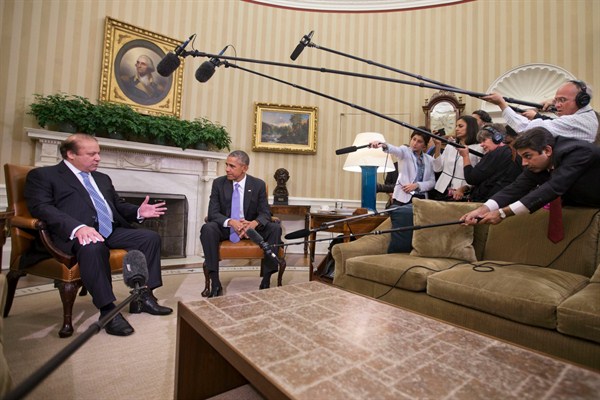Earlier this year, in Jeffrey Goldberg’s extended profile of President Barack Obama and his views on U.S. foreign policy, Pakistan was barely mentioned, except for one striking reference. Obama, Goldberg wrote, “privately questions why Pakistan, which he believes is a disastrously dysfunctional country, should be considered an ally of the U.S. at all.”
Obama’s view is ironic, because he tried hard to strengthen Washington’s relations with Islamabad. The Obama administration came into office hoping to transform the relationship from a transactional, security-focused arrangement into a deeper, strategic partnership. His efforts, however, have largely proved unsuccessful.
Obama’s Pakistan policy was doomed by a fundamental reality of U.S.-Pakistan relations: Security issues will always find a way to dominate the agenda, but the security interests of the two countries do not align. Tensions are therefore inevitable. Pakistan’s unhappy reaction to Washington’s recent drone strike killing the Afghan Taliban leader Mullah Mansour in Baluchistan, where top Taliban officials have long enjoyed sanctuaries, is just the latest example.

